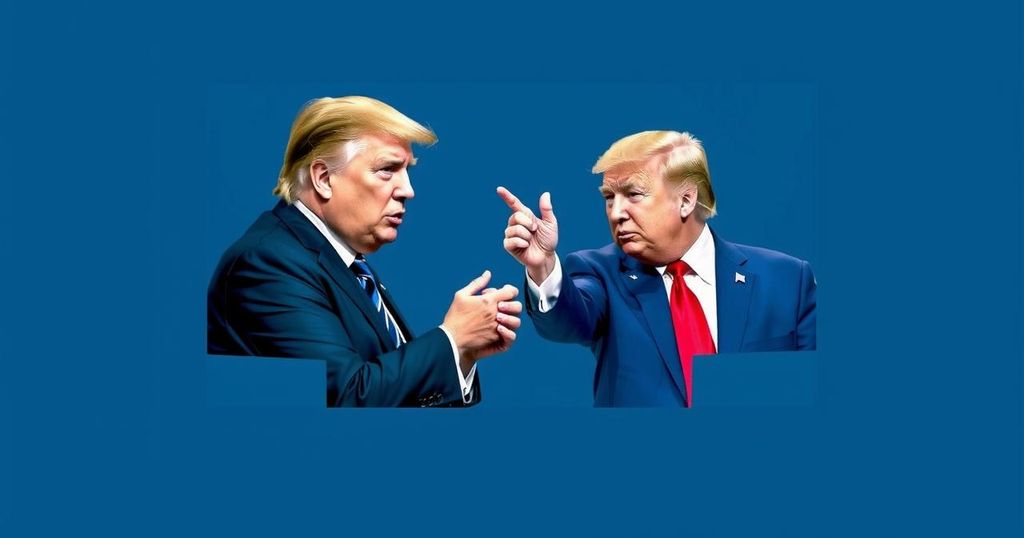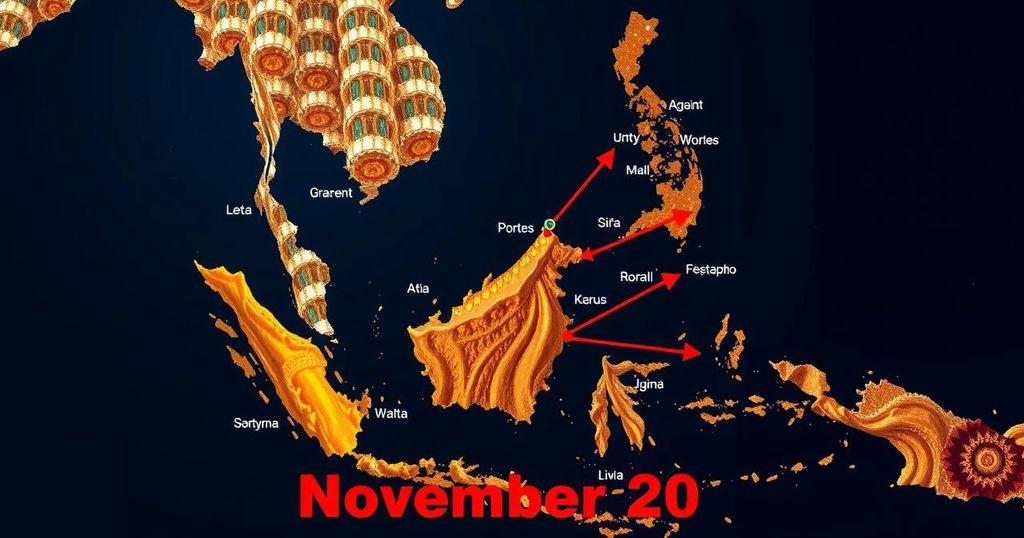Foreign Influence Intensifies Ahead of U.S. Election 2024
With the 2024 U.S. elections just weeks away, Russia, Iran, and China are ramping up their influence efforts. The Microsoft Threat Analysis Center reports malicious actions, including Iranian cyber actors targeting Trump campaign materials, Russian operatives creating AI-generated disinformation against Vice President Kamala Harris, and Chinese campaigns aiming at anti-Chinese candidates in Congress. It is crucial for voters and institutions to remain vigilant against these foreign threats as Election Day approaches.
As the United States approaches the crucial Election Day in 2024, foreign adversaries, including Russia, Iran, and China, are intensifying their efforts to influence the electoral process. The Microsoft Threat Analysis Center (MTAC) has been closely monitoring activities that undermine U.S. democratic integrity. Recent reports indicate that Iranian cyber actors have engaged in the illicit dissemination of sensitive materials related to former President Donald Trump’s campaign, targeting both entities linked to President Biden’s campaign and media outlets. Notably, the Russian influence efforts have shifted focus towards Kamala Harris’s campaign, particularly as she formally entered the race. These actors are employing tactics such as generative AI to create AI-driven disinformation. Recent AI-generated videos portray Vice President Harris in a negative light, while other malicious content targets her and fellow Democratic nominee Tim Walz by distorting their public personas and attempting to discredit their campaigns. Iran’s cyber-influence operations persist despite heightened regional tensions. The Iranian group, operating under the guise of “Bushnell’s Men,” has called for American voters to boycott the elections in protest against candidates’ pro-Israel stances. Furthermore, the Iranian cyber group, labeled as Cotton Sandstorm, is reportedly preparing for more direct influence operations as the election draws nearer, reflecting a consistent threat to electoral integrity. Meanwhile, China’s focus has shifted to influence operations against lower-tier Republican candidates and members of Congress who advocate anti-Chinese positions. These attempts include spreading anti-Semitic narratives and accusations of corruption while backing opposition candidates. Although these activities have not always garnered significant engagement, they underscore China’s persistent influence efforts within the U.S. political landscape. Amidst these operations, it remains essential for voters and institutions to be vigilant against deceptive narratives, especially in the critical timeframe surrounding Election Day. The rapid spread of manipulated media can profoundly affect public perception and electoral outcomes. Early alerts and comprehensive fact-checking are pivotal in mitigating these foreign interference strategies.
As digital threats posed by foreign nations become increasingly sophisticated, understanding their influence on democratic processes is crucial. The monitoring and analysis of these activities, particularly surrounding U.S. elections, reveals a complex landscape where malicious actors seek to disrupt and discredit electoral integrity. The Microsoft Threat Analysis Center acts as a watchdog against these threats, documenting significant findings regarding the interplay between foreign influence and national elections.
In conclusion, the persistent and evolving influence operations orchestrated by Russia, Iran, and China present a formidable challenge to the integrity of U.S. elections. As the election date approaches, vigilance, fact-checking, and swift identification of deceptive content remain paramount to safeguarding democratic processes. The actions of these foreign actors highlight the importance of continued monitoring and public education to counteract potential interference in the electoral framework.
Original Source: blogs.microsoft.com








Post Comment